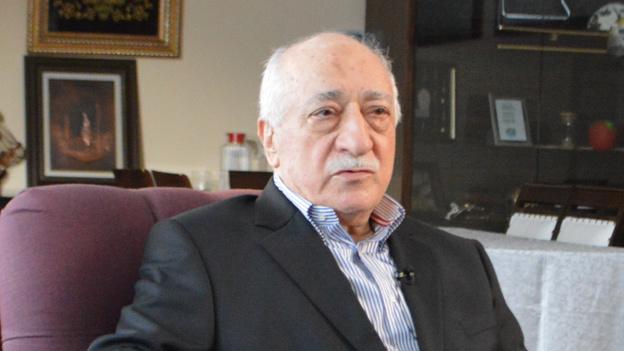Turkey coup attempt: Greek dilemma over soldiers who fled
- Published
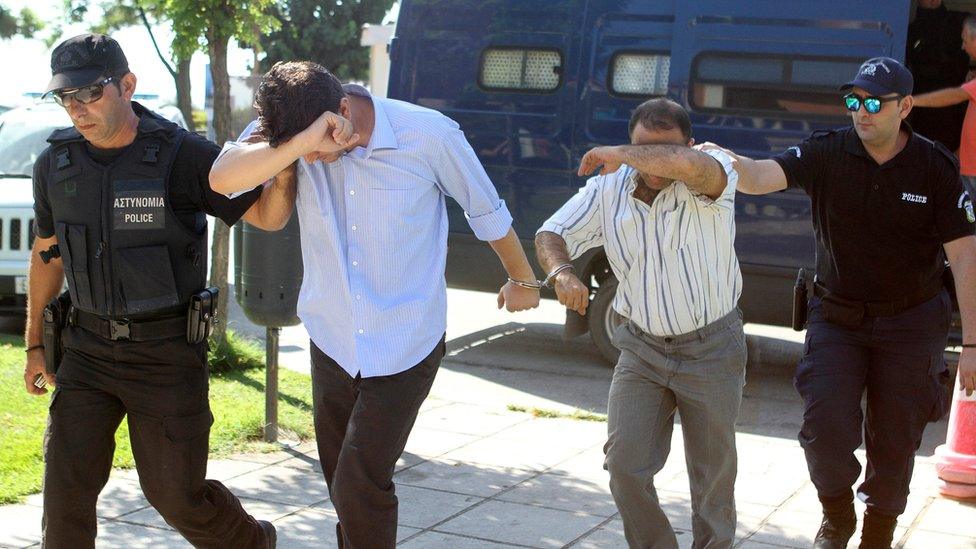
The soldiers who landed in Greece by helicopter (two seen here handcuffed) have sought asylum
Early on Saturday morning, an airport in the Greek town of Alexandroupoli, close to the Turkish border, received a distress signal.
It was from a Turkish military helicopter.
On board were eight Turkish soldiers, fleeing their country, amidst the chaos of Friday night's failed coup.
When they landed in Greece, they asked for political asylum.
Turkey has demanded their extradition. Turkish Foreign Minister Mevlut Cavusoglu said they were traitors.
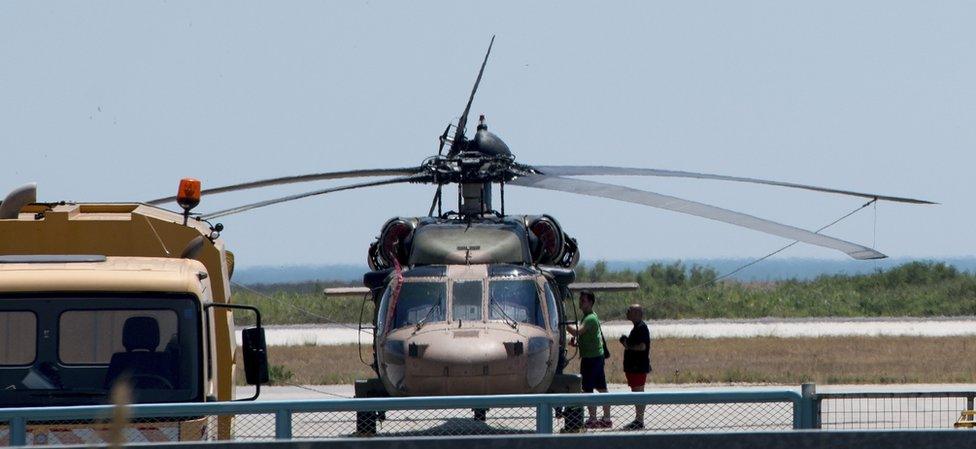
The Black Hawk helicopter landed at Alexandroupoli airport on 16 July but is now back in Turkey
The helicopter has been returned to Turkey, but the fate of the soldiers is much more complicated.
They deny taking part in the attempted coup. A lawyer for four of the men, Vasiliki Marinaki, told me they decided to leave when they were shot at by Turkish police during the unrest.
She said the soldiers included two majors, four captains and two non-commissioned officers.
Turkey coup: Greek lawyer defends soldiers who fled
On Monday, they appeared before a judge in Alexandroupoli, charged with entering Greece illegally.
They were not in uniform when they were brought to the courthouse and their faces were covered.

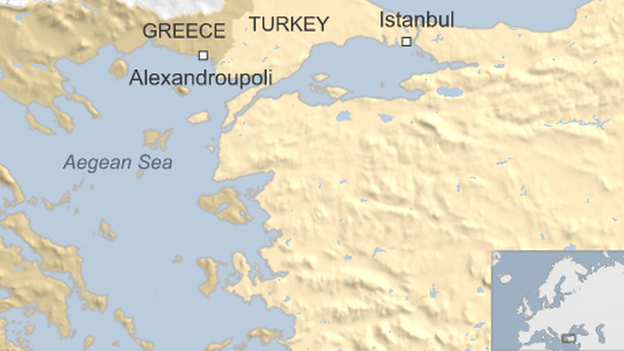
What you need to know: A brief explainer of a complex story
"What's happening to our country?": Shock in Taksim Square, Istanbul
Who was behind the plot?: The thorny relationship between Turkey's government and military
Turkey's ruthless president: Recep Tayyip Erdogan in profile
Why mobiles beat tanks: in Turkey's coup How Erdogan used social media

The atmosphere in court was tense. At one point two Turkish officials, who are believed to have come from a local consulate, sat directly behind them until a Greek lawyer asked them to be moved away.
Vasiliki Marinaki said the Turkish officials threatened her clients in the courtroom.
"My clients told me that in the court were people from Turkey, and they said bad words against them. Someone who speaks Turkish told me they called them 'dogs, traitors, we will kill you'. Something like that."
The trial, on charges of illegal entry, has now been adjourned until Thursday. But Turkey's extradition request, and the soldiers' asylum claim are ongoing.
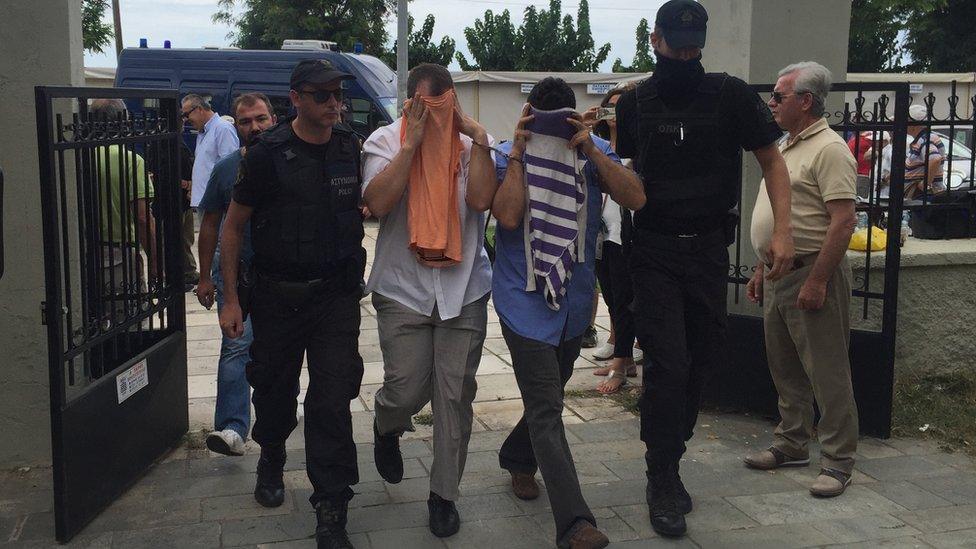
The case has aggravated already tense Greek-Turkish relations
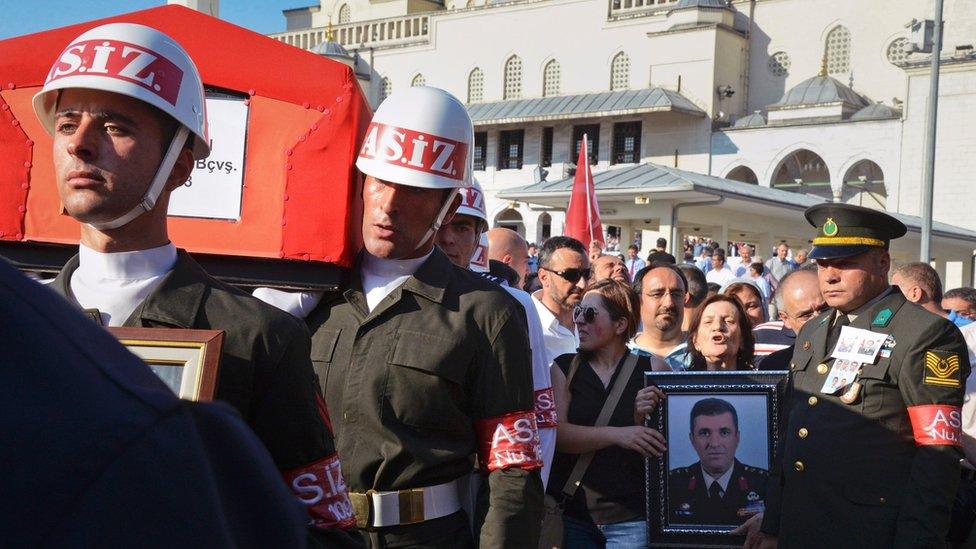
There is rage in Turkey over the coup attempt, in which more than 230 people were killed
The case puts Greece in a difficult position.
Diplomatically speaking, extraditing the soldiers would probably be the easiest option for Greece, which does not want to upset relations with Turkey.
The Greek government has said it will "seriously consider" the fact that the soldiers are accused of "attempting a regime change".
But after the coup, Turkish President Recep Tayyip Erdogan spoke about possibly reintroducing the death penalty in Turkey.
Athens-based lawyer Konstantinos Starantzis says that makes the situation very "complicated" under Greek and international law.
"I suspect that the Greek authorities want a clean and immediate extradition procedure. However, there are strong legal arguments to oppose such a thing.
"We have to consider the safety of their lives. That is the first argument when granting asylum. They can't be extradited if there is the suspicion of a political or a military prosecution against them - and harsh penalties."
For now, the soldiers remain in prison in Alexandroupoli, their fate uncertain.
- Published16 July 2016
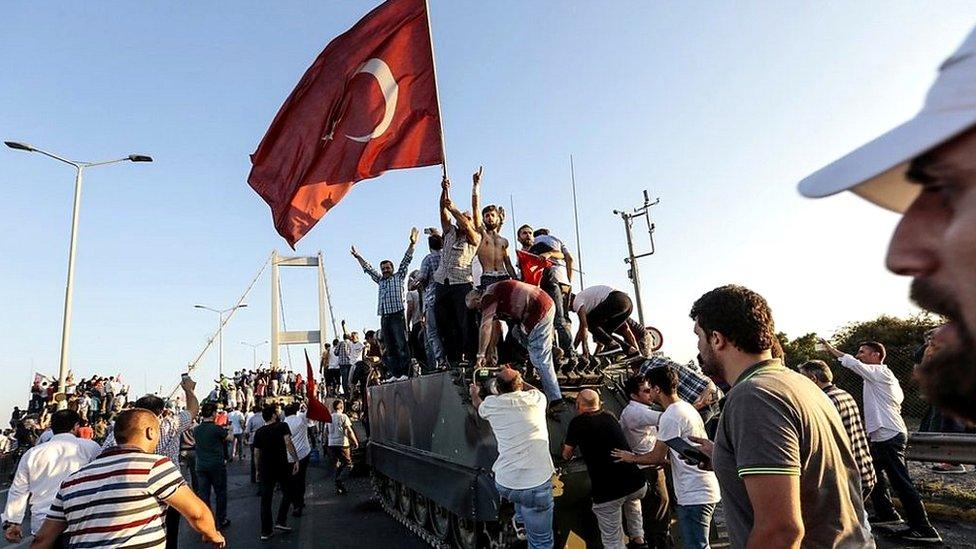
- Published16 July 2016
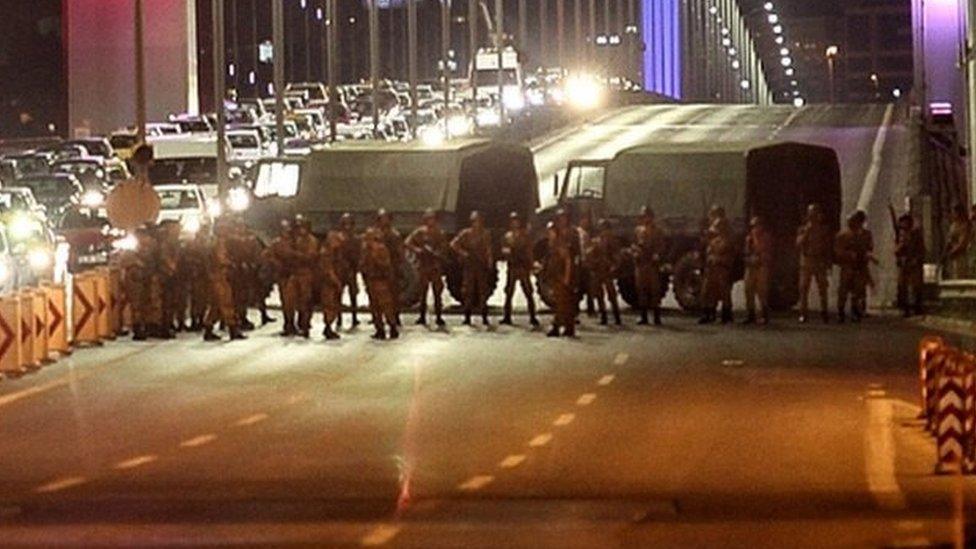
- Published16 July 2016
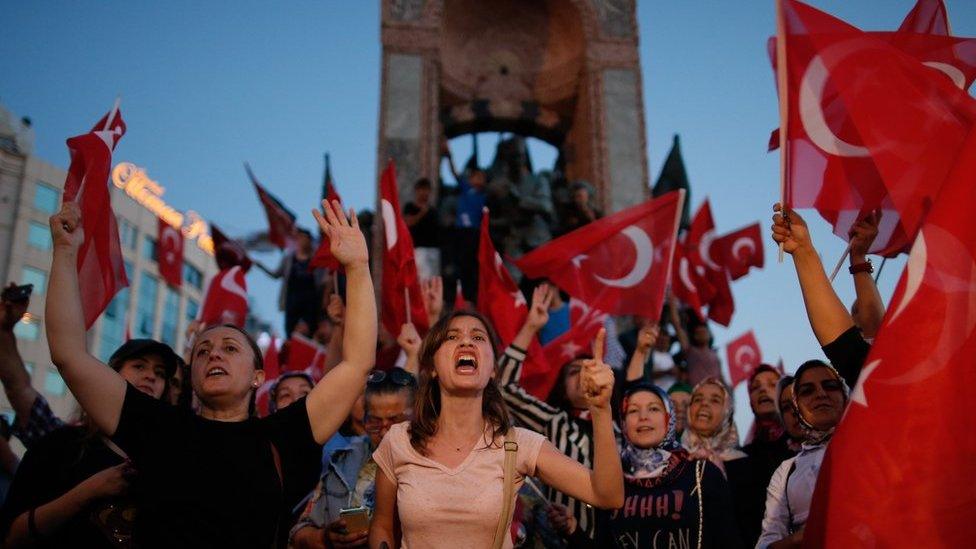
- Published17 July 2016
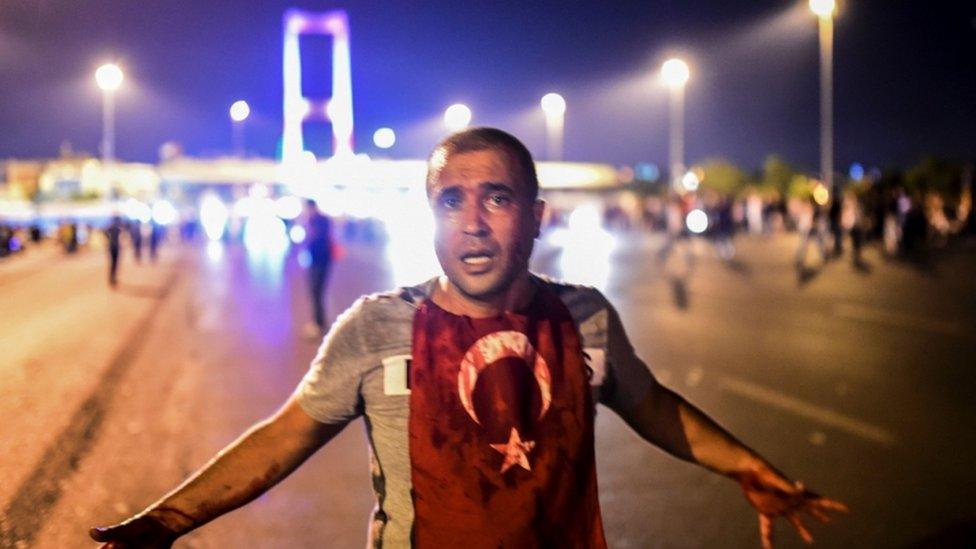
- Published16 July 2016
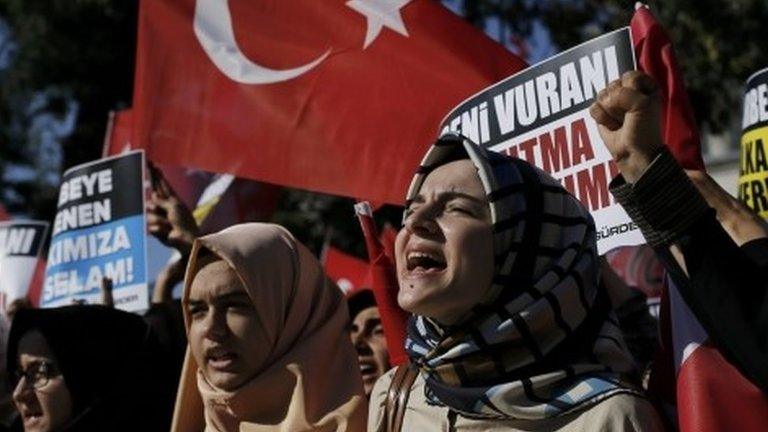
- Published16 July 2016
- Published27 January 2014
